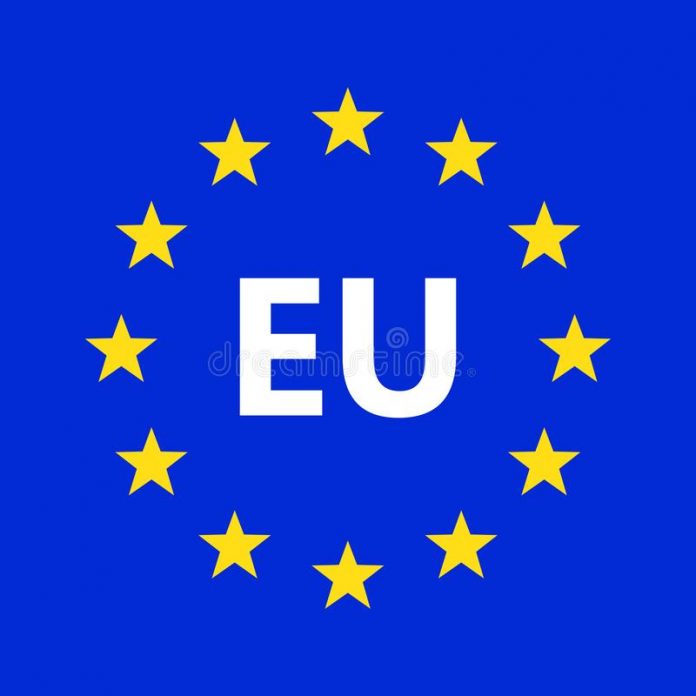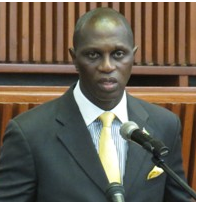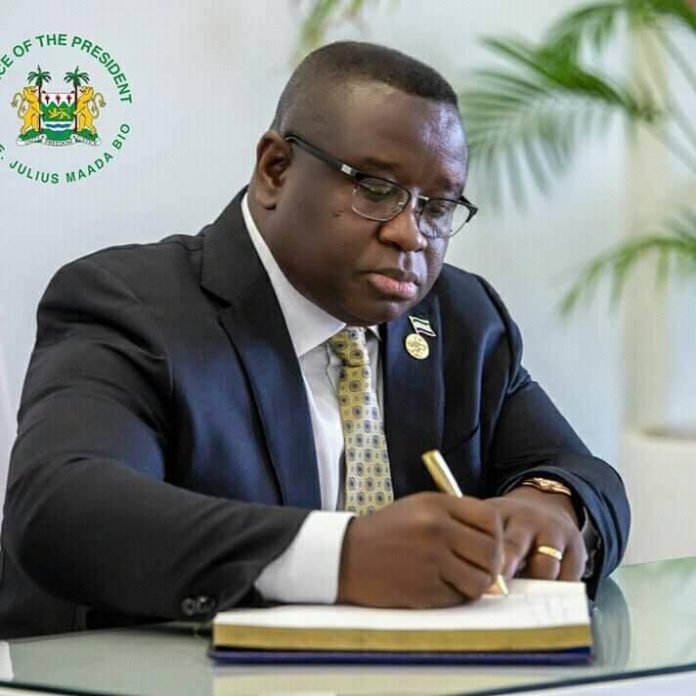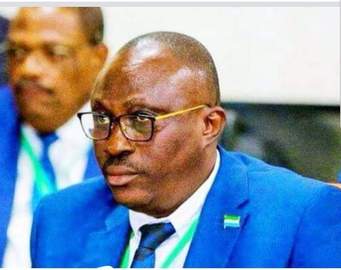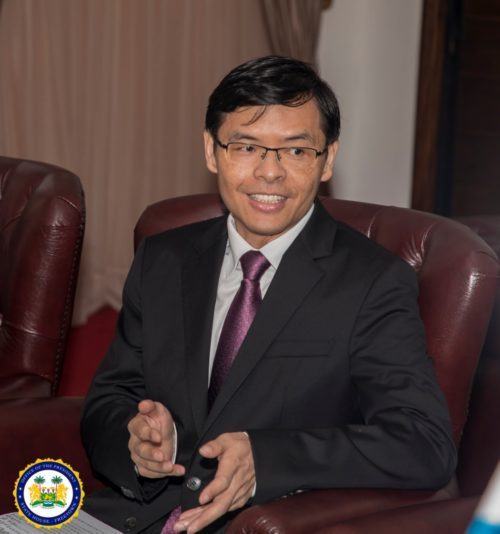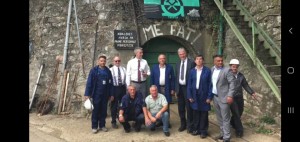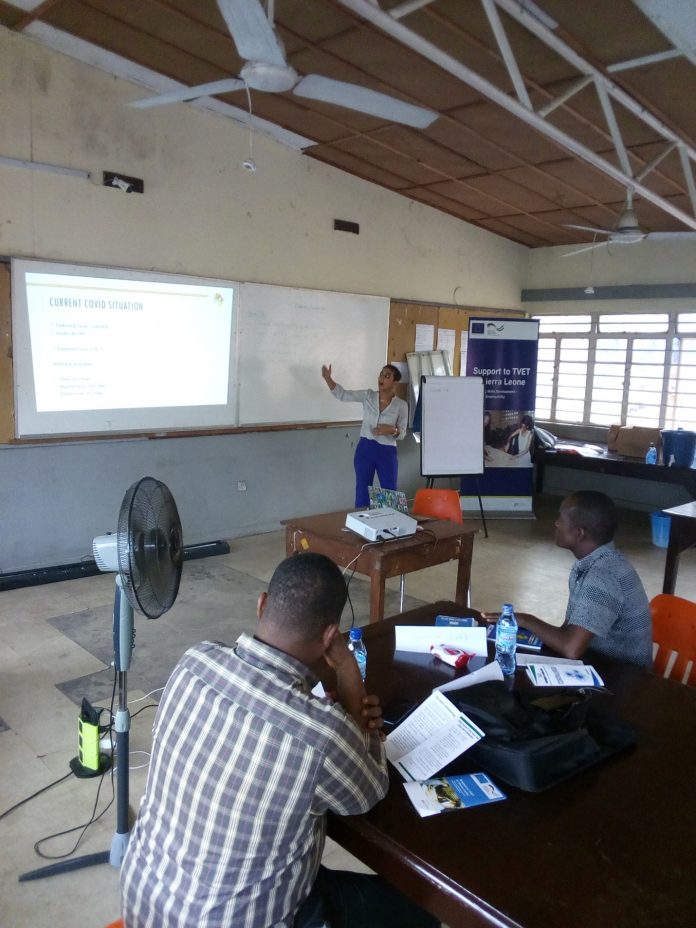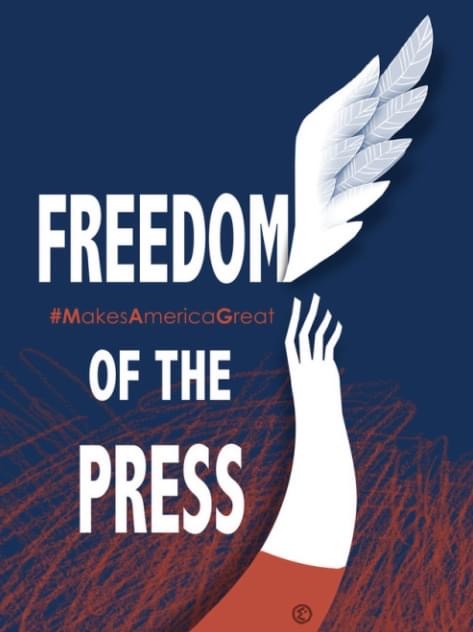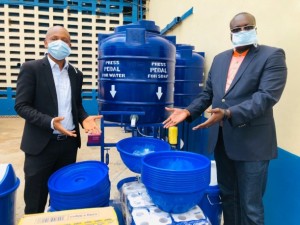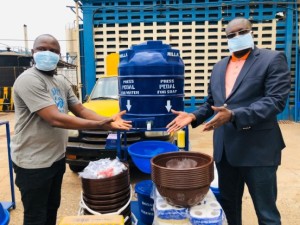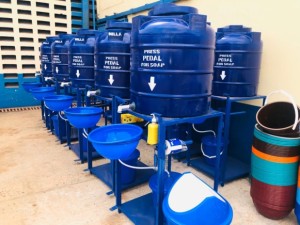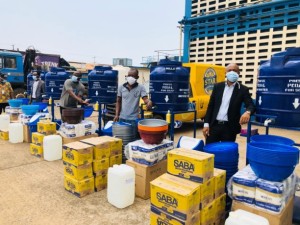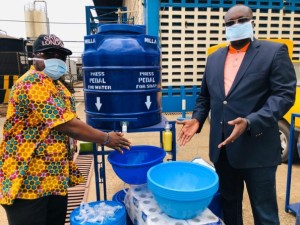By Amin Kef Sesay
On the 7th April 2020, the European Commission of the European Union(EU)in Brussels issued a Press Release in which it stated the Commission and the High Representative have set out plans for a robust and targeted EU response to support partner countries’ efforts in tackling the coronavirus pandemic.
According to the Release, the EU’s collective action will focus on addressing the immediate health crisis and resulting humanitarian needs, strengthening partner countries’ health, water and sanitation systems and their research and preparedness capacities to deal with the coronavirus pandemic, as well as mitigating the socioeconomic impact.
It furthered that to underpin those actions, the EU will secure financial support to partner countries amounting to more than €15.6 billion from existing external action resources. “Together with our partners, we are making sure that the substantial EU funding already allocated to them is targeted to help them deal with the impact of coronavirus,” it maintained.
The President of the European Commission, Ursula von der Leyen, commented:“The virus knows no borders. This global challenge needs strong international cooperation. The European Union is working tirelessly to fight the pandemic. We all know that only together we can stop the worldwide spread of the coronavirus. To that end, the EU will soon convene a virtual pledging event to help mobilize the necessary funding and support the World Health Organization to assist the most vulnerable countries.”
High Representative/Vice-President Josep Borrell, added: “The coronavirus pandemic requires united, global action in response. The European Union and its Member States are playing their part in tackling this health crisis and its severe consequences – at home and abroad. While we are doing everything we can to provide support of our citizens, we also need to assist our partners in our direct neighbourhood and beyond to address the impact it will have on their livelihoods, stability and security, as their problems are our problems. This is a global fight that we will either win or lose together. Cooperation and joint efforts at the international level and multilateral solutions are the way forward, for a true global agenda for the future.”
Commissioner for International Partnerships, Jutta Urpilainen, explained:”As long as the coronavirus threatens lives somewhere, we are not safe. This is the core of international cooperation and partnerships. We need to work together in order to tackle our shared challenges. Today the European Commission steps up and leads with this significant global response package of more than €15.6 billion the joint work with our partners, particularly in Africa, for a safer future for us all.”
With regards Neighbourhood and Enlargement Commissioner, Olivér Várhelyi, said: “As part of our global response to the coronavirus pandemic we are redirecting over €3.8 billion of foreseen funds for the Western Balkans and our immediate neighbours to the East and to the South, to where their real needs are today: for urgent response to the health crisis, to strengthen the health systems and to mitigate the socio-economic impact of the pandemic. We share a continent and we can only succeed together.”
Janez Lenarčič, Commissioner for Crisis Management, warned: “We are facing what could become the biggest humanitarian crisis in decades. The impact of the coronavirus outbreak on the most fragile countries, migrants and the most vulnerable people is likely to be dramatic. This is particularly the case in the confined and often insalubrious setting of refugee and internally displaced people camps. That is why we need to respond vigorously to the public health emergency, make sure humanitarian actors continue to have access to carry out their life-saving assistance and support transport and logistic for key humanitarian operations.”
The EU’s response follows a ‘Team Europe’ approach, aimed at saving lives by providing quick and targeted support to their partners to face the pandemic. It combines resources from the EU,its Member States and financial institutions, in particular the European Investment Bank and the European Bank for Reconstruction and Development, to support partner countries and address their short-term needs, as well as the longer-term structural impacts on societies and the economy. The first Team Europe packages are already being implemented in the immediate neighbourhood: the Western Balkans, in the East and to the South.
The releases added that the EU, as global actor and major contributor to the international aid system, will promote a coordinated multilateral response, in partnership with the United Nations, International Financial Institutions, as well as the G7 and the G20.
It said the European Union will continue to adapt its response to the evolving situation and focus on the most affected countries in need of health support, such as countries in Africa, the Neighbourhood, the Western Balkans, the Middle East and North Africa, parts of Asia and the Pacific, Latin America and the Caribbean.
Besides, it stresses that the EU’s response will focus on the most vulnerable people, including migrants, refugees, internally displaced persons and their host communities and integrate its strategic objectives set out in the Green Deal and the Digital Agenda.
The EU Release stated that from the overall package of €15.6 billion, €3.25 billion are channelled to Africa, including €1.19 billion for the Northern African neighbourhood countries.
“The EU is securing in total €3.07 billion for the whole neighbourhood – €2.1 billion for the South and €962 million for the Eastern Partner countries – and €800 million for the Western Balkans and Turkey.
In addition, the overall package includes another €1.42 billion in guarantees for Africa and the neighbourhood from the European Fund for Sustainable Development (EFSD).
The EU will support Asia and the Pacific with €1.22 billion, another €291 million will go for the Africa, Caribbean and Pacific region, €918 million to support our partners in Latin America and the Caribbean and €111 million to support Oversees Countries and Territories,” it pointed out.
Delivering the EU global response package in practice
€502 million for Emergency response actions focused amongst others, on:
- Providing immediate support to the Response Plans of the World Health Organisation and the United Nations, as well as to the appeal of the Red Cross and Red Crescent Movement to boost emergency preparedness and response in countries with weaker health systems and those dealing with humanitarian crises;
- Providing immediate humanitarian support in affected countries, in particular in health, water, sanitation and hygiene (WASH) and logistics;
- Supporting increased production in Europe of personal protective equipment and medical devices to meet urgent needs in Europe and in partner countries;
- Organising the supply of in-kind assistance to affected countries through the Union Civil Protection Mechanism;
- Providing guarantee and liquidity provisions to local banks via International Financial Institutions and European Development Finance Institutions, supported by the European Fund for Sustainable Development;
- Supporting global efforts to combat export restrictions and ensure supply chains remain intact, notably for essential medical supplies and pharmaceuticals;
- Associating the Western Balkans to EU initiatives such as the Joint Procurement Agreement for medical equipment and the European rapid alert system for communicable diseases. Countries negotiating their accession can also apply for the EU Solidarity Fund.
€2.8 billion to support research, health and water systems, the EU is, amongst others:
- Supporting partner countries in building resilient, responsive health and social protection systems;
- Supporting communication and awareness efforts on basic protective measures and hygiene advice to prevent the spread;
- Allowing some EU funding from global health initiatives like the Global Fund to fight Aids, Tuberculosis and Malaria, the Global Alliance for Vaccines and Immunisation (GAVI) and the Global Financial Facility to be used to respond to the coronavirus, while ensuring continuation of vital health programmes;
- Supporting further research on diagnostics, treatment and prevention, and once a vaccine is available, fast-tracking approval and subsidizing vaccines and their delivery in vulnerable countries;
- Supporting experts training, epidemiological surveillance and strengthening regional health organisations in Africa, Latin American and the Caribbean and Asia and the Pacific;
- Welcoming candidate countries in the Western Balkans to the EU’s Health Security Committee and reflecting how best to associate potential candidates;
- Supporting equal access to health systems for migrants, refugees and host communities.
€12.28 billion to address the economic and social consequences, the EU is amongst other:
- Providing direct budget support and concessional financing for partner countries to adopt reforms for socio-economic development and poverty reduction, and measures to protect workers during the crisis;
- Mobilising macro-financial assistance for Western Balkan and neighbouring countries with the International Monetary Fund (IMF);
- Supporting the private sector, especially small and medium enterprises (SMEs) and the self-employed, via guarantees, liquidity provisions and technical assistance and further reorient guarantees from the European Fund for Sustainable Development towards short-term risk-sharing on loans;
- Providing public sector loans from the European Investment Bank, notably for healthcare equipment and supplies;
- Working with international organizations and European companies to build strong and resilient value chains in strategic sectors and ensure labour rights and corporate social responsibility;
- Promoting forms of debt relief considered by the IMF in affected countries.

